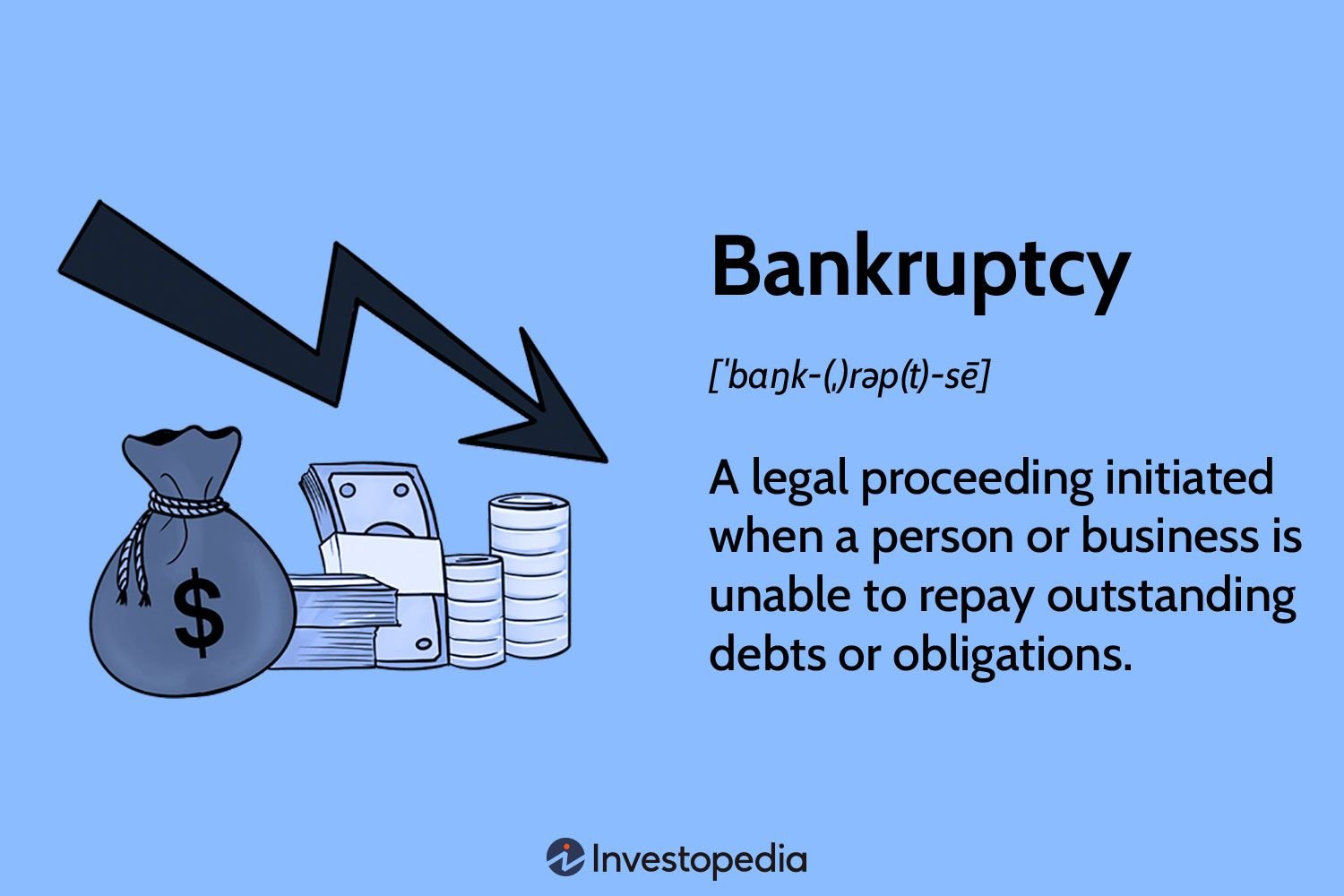Are you curious about what corporate finance is and why it holds such importance in the business world? Look no further! Corporate finance, in its essence, refers to the financial activities and decisions carried out by companies to maximize their value and achieve their goals. It encompasses managing funds, analyzing investments, and making strategic financial decisions. Understanding corporate finance is crucial for businesses as it enables them to navigate through various financial challenges, optimize their capital structure, and make informed decisions that drive growth and profitability. Now, let’s delve deeper into the world of corporate finance and explore its significance.
What is Corporate Finance and Its Importance?
Corporate finance plays a vital role in the success and growth of companies. It involves managing the financial activities and decisions within an organization to maximize shareholder value. Corporate finance encompasses a wide range of activities, from financial planning and analysis to capital budgeting and investment decisions. In this article, we will explore the intricacies of corporate finance and understand its importance in driving business growth and profitability.
Understanding Corporate Finance
At its core, corporate finance involves managing the finances of a corporation to ensure the efficient utilization of resources and the achievement of financial objectives. It provides a framework for making strategic financial decisions that impact the overall profitability and sustainability of the organization.
Corporate finance professionals analyze financial data, assess risks, and develop strategies to optimize the company’s financial position. They work closely with other departments, such as accounting, marketing, and operations, to align financial goals with operational objectives.
The Importance of Corporate Finance
Corporate finance plays a crucial role in the success of a company. Let’s delve into the importance of corporate finance and how it contributes to the overall growth and profitability of an organization.
1. Financial Planning and Analysis
Effective financial planning and analysis are central to corporate finance. It involves forecasting future financial needs, assessing the company’s financial health, and developing strategies to optimize financial resources. Here’s why it’s essential:
- Identifying financial risks: Financial planning helps identify potential risks and uncertainties that may impact the company’s financial stability. By assessing and mitigating risks, companies can protect their assets and maximize profitability.
- Optimizing resource allocation: Through financial planning, companies can allocate resources efficiently to various projects and initiatives. This ensures that resources are utilized optimally and that the organization achieves its financial objectives.
- Budgeting and forecasting: Corporate finance professionals use financial planning techniques to create budgets and forecasts, enabling the organization to set realistic goals and track progress towards achieving them.
2. Capital Budgeting and Investment Decisions
Capital budgeting involves evaluating and selecting long-term investment projects that yield the highest returns. This process is crucial for companies as it helps determine where to allocate financial resources. Here’s why capital budgeting is important:
- Maximizing shareholder value: Capital budgeting enables companies to evaluate investment opportunities and select those that generate the highest returns. By choosing profitable projects, companies can maximize shareholder value and attract potential investors.
- Optimizing resource allocation: Capital budgeting ensures that financial resources are allocated to projects that align with the company’s strategic goals. It helps companies avoid investing in projects with low profitability or those that do not contribute to the organization’s long-term growth.
- Risk assessment and mitigation: Through thorough analysis and evaluation, capital budgeting helps identify potential risks associated with investment projects. This allows companies to make informed decisions and develop strategies to mitigate risks.
3. Financing and Capital Structure
Another critical aspect of corporate finance is determining the optimal capital structure for an organization. It involves analyzing the mix of debt and equity financing that minimizes the cost of capital and maximizes shareholder value. Here’s why it matters:
- Cost of capital optimization: By determining the ideal capital structure, companies can minimize the cost of capital, which directly affects profitability. Achieving an optimal balance between debt and equity financing ensures efficient utilization of financial resources.
- Raising funds for growth: Corporate finance professionals play a significant role in raising funds for expansion, mergers and acquisitions, and other growth initiatives. They analyze various financing options and devise strategies to secure funds at favorable terms.
- Financial risk management: Determining the capital structure enables companies to manage financial risks effectively. Balancing debt and equity financing minimizes the risk of bankruptcy and provides the necessary flexibility during economic downturns.
4. Financial Performance Evaluation
Corporate finance professionals are responsible for evaluating the financial performance of an organization and providing actionable insights to improve profitability. Here’s why financial performance evaluation is vital:
- Measuring financial success: By analyzing financial statements, conducting variance analysis, and performing ratio analysis, companies can measure their financial success. This evaluation helps identify areas for improvement and provides a benchmark for future performance.
- Identifying growth opportunities: Financial performance evaluation assists in identifying growth opportunities by assessing the profitability and return on investment of different business segments. This helps companies make informed decisions regarding resource allocation and expansion strategies.
- Attracting investors and stakeholders: Accurate financial performance evaluation builds trust among investors and stakeholders. It provides transparency and demonstrates the company’s ability to generate returns, increasing its attractiveness to potential investors.
In conclusion, corporate finance is a critical function within organizations, ensuring the efficient management of financial resources and driving business growth. From financial planning and analysis to investment decisions and capital structure optimization, corporate finance professionals contribute to the overall success and sustainability of a company. By understanding the importance of corporate finance and its various components, businesses can make informed financial decisions, maximize profitability, and create long-term value for their stakeholders.
What is Corporate Finance
Frequently Asked Questions
Frequently Asked Questions (FAQs)
What is corporate finance?
Corporate finance refers to the financial activities and decisions made by corporations or businesses to manage their financial resources, including the acquisition and allocation of funds, investment decisions, and financial risk management.
Why is corporate finance important?
Corporate finance is important for several reasons:
– It helps businesses make informed financial decisions that can improve their profitability and long-term success.
– It allows companies to effectively manage their financial resources, such as cash flow and capital investments.
– It helps businesses evaluate investment opportunities and determine the best use of their funds.
– It enables companies to mitigate financial risks and ensure financial stability.
– It provides insights into the financial health of a company, which is crucial for attracting investors and securing financing.
What are the key components of corporate finance?
The key components of corporate finance include:
– Capital budgeting: Evaluating and selecting investment opportunities.
– Financial risk management: Assessing and mitigating potential financial risks.
– Capital structure: Determining the mix of debt and equity financing.
– Working capital management: Managing short-term assets and liabilities.
– Dividend policy: Deciding on the distribution of profits to shareholders.
How does corporate finance differ from investment banking?
While corporate finance focuses on managing a company’s financial resources and making financial decisions within the organization, investment banking primarily deals with providing financial advisory services to corporations, governments, and other institutions. Investment banks assist with capital raising, mergers and acquisitions, and securities trading.
What role does corporate finance play in mergers and acquisitions?
Corporate finance plays a crucial role in mergers and acquisitions (M&A) by evaluating the financial aspects of the transaction. It involves conducting due diligence, determining the value of the target company, analyzing financing options, and assessing the potential risks and benefits associated with the merger or acquisition.
How does corporate finance help in managing financial risks?
Corporate finance helps in managing financial risks by identifying potential risks, assessing their impact on the company, and implementing risk mitigation strategies. This may involve diversifying investments, using hedging techniques, maintaining adequate insurance coverage, and establishing financial contingency plans.
What skills are important in corporate finance?
Important skills in corporate finance include:
– Financial analysis: The ability to analyze financial statements and data accurately.
– Decision-making: The capacity to make informed financial decisions based on analysis and evaluation.
– Risk management: The skill to identify, assess, and mitigate financial risks.
– Communication: The ability to effectively communicate financial information to stakeholders.
– Business acumen: A solid understanding of the business environment and industry dynamics.
How does corporate finance impact shareholders and investors?
Corporate finance directly impacts shareholders and investors by influencing the financial performance and value of the company. Effective corporate finance practices can lead to higher profitability, increased shareholder value, and a more attractive investment opportunity. On the other hand, poor corporate finance decisions can result in financial losses, decreased stock prices, and a loss of investor confidence.
Final Thoughts
Corporate finance is a crucial aspect of financial management for businesses. It involves managing the financial resources and decisions that contribute to the overall success of a company. By analyzing financial data, making strategic investments, and effectively managing cash flow, corporate finance ensures the stability and profitability of a business. Through activities such as financial planning, budgeting, and risk management, corporate finance helps companies allocate resources efficiently to maximize shareholder value. It also plays a vital role in facilitating mergers and acquisitions, capital raising, and corporate restructuring. In short, corporate finance is essential for businesses to make informed financial decisions and achieve their strategic goals.



